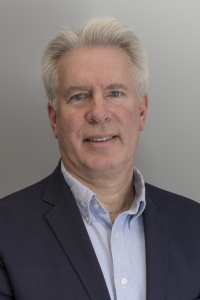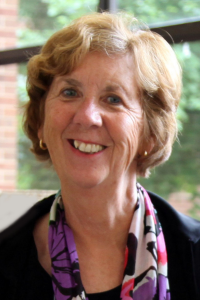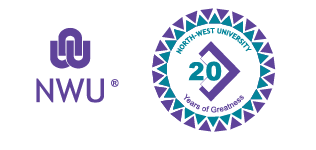Professor Karl Wirth

Karl Wirth is an associate professor of geology and has been teaching at Macalester College for more than 25 years. His education work focuses on metacognition, self-assessment, motivation, and undergraduate research experiences in support of best practices in teaching and learning. As Co-Director of the NSF-funded Keck Geology Consortium he seeks to broaden participation in the sciences and to improve undergraduate research experiences through development of curricular structures and mentoring practices. Previously he served as Associate Director of the Jan Serie Center for Scholarship and Teaching, he was a training associate for the IDEA center, he worked with the Science Education Resource Center to develop a structured classroom observation program, he was the Assessment Coordinator for the Keck Geology Consortium, he served as an elected councilor of the National Association of Geology Teachers, and he was a panelist on metacognition for the Organization for Economic and Cooperative Development (OECD) Center for Curriculum Redesign in Paris. Karl regularly speaks on education and has led more than two-hundred faculty development workshops on metacognition, learning management systems, active learning pedagogies, course design, critical thinking, and the evaluation of teaching for institutions across the US and abroad. In his spare time, Karl teaches SCUBA and enjoys photographing the underwater world.
Keynote description
The challenges facing modern society in this rapidly changing and uncertain world are complex and daunting. Recent advances in technology not only ushered in the Information Age, but have transformed nearly every part of our professional and private lives. In an increasingly globalized world, political boundaries are shifting, economies are changing, and societies and cultures have been thrown into disequilibrium. And as the human population has increased, so too has our appetite for natural resources and our impacts on the global environment. What knowledge, skills, and dispositions do today’s learners need for tackling these challenges and for leading fulfilling and productive lives? How can education be reshaped to better meet both individual and societal needs in a climate of rapid change? If education systems were more intentional about the development of self-directed learners, students would be more empowered to continue learning, and adapting, throughout their lives. Some might even argue that the goal of education ‘is’ self-directed learning, and that our curricula and instruction should reflect this goal more explicitly. After a brief introduction and overview of self-directed learning, this address offers examples of curricula and pedagogies designed to promote the development of self-directed learners while simultaneously deepening content learning.
Professor Sharan Merriam

Sharan B. Merriam is Professor Emerita of Adult Education and Qualitative Research at The University of Georgia in Athens, GA, USA. Merriam’s research and writing activities have focused on adult and lifelong learning and qualitative research methods. For five years she was coeditor of Adult Education Quarterly, the major research and theory journal in adult education. She has published 33 books and over 100 journal articles and book chapters. She is a four-time winner of the prestigious Cyril O. Houle World Award for Literature in Adult Education. Her most recent books are Qualitative Research: A Guide to Design and Implementation (2016), Adult Learning: Linking Theory and Practice (2014), The Jossey-Bass Reader on Contemporary Issues in Adult Education (2011), and Non-Western Perspectives on Learning and Knowing (2007). She is currently under contract for a second edition of Qualitative Research in Practice: Examples for Discussion and Analysis, and for a fourth edition of her award-winning book, Learning in Adulthood. She has been a Fulbright Scholar and a Senior Research Fellow in Malaysia, and a Distinguished Visiting Scholar at universities in Thailand, South Korea and South Africa.
Keynote description
The theme of this conference, Self-Directed Learning for the 21st Century, points to the reciprocal nature of this type of learning with the society in which it takes place. SDL has never been learning that occurs in splendid isolation from the social context. How does the social context not only stimulate what self-directed learning we engage in, but how we go about that learning? Learners in today’s rapidly changing high-tech environment for example, have tech-related learning needs and use many of the same digital-age resources in addressing those needs. Explored first are the sites of SDL including informal, nonformal and formal settings followed by factors that shape the learning such as physical contextual variables, social norms inherent in valuing independence versus interdependence, and in individualistic versus collective societies, and the role of self-directed learning in the advancement of society and planetary sustainability. Three case studies—an eleven year old’s home video, teenagers organizing a nationwide protest, and senior adults taking formal classes—will be used to illustrate the integral connection between self-directed learning and the society in which it takes place. Finally, suggestions will be offered for how higher education can foster self-direction in learning while at the same time contributing to community and social well-being.
Professor Ignatius Gous

Effective Learning is not about “10 tricks to ace maths” … or any other subject matter. Effective Learning is about mastering the art of meaningful living. It entails sets of habits and strategies that are mutually related and supportive, focusing on Identity (Who I am), Mastery (How I learn) and Legacy (Why I learn). With this in mind, Prof Ignatius Gous developed the “Golden Spiral for Life-Long Learning”, a schema guiding and directing effective learning for learners at school, for students at university, as well as for adults in the workplace. Embedded in the overarching point of departure “I Learn for a Reason”, it translates reputable research on how the brain and its mind learn, into the workable everyday practices of teaching and learning. His research is based upon work done in the Mind, Brain, and Education Sciences discipline, and he has presented papers and posters about it in Australia, Canada, China, Croatia, Denmark, Germany, Hungary, India, Italy, Mauritius, New Zealand, Russia, Spain, Sweden, and the UK. He was awarded the “Best Poster” prize at the European Distance Education Network (EDEN) meeting in Barcelona, Spain, in 2016. In South Africa, he is tasked to train Masters of Business Leadership and Masters of Business Administration students, as well as students studying towards Medicine, Dentistry, Veterinarian Science, Engineering, Actuarial Science, Chartered Accounting, the Sciences and the Humanities, with many of these students improving from average marks to obtaining their qualification with distinction. He is also involved in a project in primary and secondary schools, supported by the Department of Basic Education and funded by Sanlam and African Rainbow Capital, where he trains teachers and learners to love and master life-long learning.
Ignatius has been a member of faculty at the University of South Africa since 1981, currently in the College of Human Sciences. Originally trained as an Old Testament Scholar, his interests evolved from attempting to understand the minds of the authors of texts, to studying the cognitive science of religion and ritual. From this it was a small step to become interested in the working of the mind in general, and specifically in the learning mind as part of the Scholarship of Teaching and Learning. He is of the opinion that if you teach only content, you have not done your job as an educator, and he firmly believes that the proof of effective teaching lies in whether transformative learning has taken place.
Keynote description
The father of SDL describes SDL as a process where individuals take the initiative, with or without the help of others, to take initiative regarding learning needs, goals, resources strategies and outcomes. This paper focusses on “with the help of others”, to explore how help can be given without jeopardizing self-initiative and self-directedness. Which foundational knowledge, skills and understandings are non-negotiable for self-directed learning to be wat it intends to be and do what it intends to do?
Being about SD learning, the point of departure will be from the Sciences of Learning, selecting relevant theories to guide the discussion. SDL is per definition something that should be done and take place, so the operationalization of theories and their practical implementation will be highlighted as well.
Knowles and those who expanded his ideas are correct in their views that learning is not merely memorizing some facts, but it is an elaborative learning process involving many aspects. For this reason, the end goal of learning should be clear, in order to evaluate the success or failure of the process. In cognitive terms, learning creates representations in minds. Representations can be compared to structures reflecting realities, and the more complete and congruent they are, the better the learning had been.
How do we direct learners to become self-directed representation builders?
Firstly, the process of representation building should be understood. Amongst many available theories, Schema Theory is used to describe what happens in a mind when learning takes place. In order to illustrate the theory in action, an overview of the field of Learning Theory is presented, thereby explaining where Schema Theory itself is situated. Learning itself, however, should be understood before it could be performed properly, and therefore a second schema is proposed, namely the Golden Cycle of Life-Long Learning, which is based on the Fibonacci Cycle, and the schema of learning as a journey with distinguishable milestones along the way. The result is a meta-Schema, constructed by sub-schemata. The effect of this, is that the learning process can be understood and used not only by expert researchers, but also by very young learners.
One of the sub-schemas is the field of meta-cognition. The ability to understand and use information from this field is crucial in order to guide and assess self-directedness. Many students, however, are so focused on the process and strategies of actual learning that they do not think explicitly about the process. For this reason the schema is made practically useable by translating it into a formula, namely BB = mc2. Metacognition is seen as your Brain Buddy (BB), acting as your mentor (m), companion (c) and coach (c). Self-directedness is dependent on the scaffolding role of metacognition, which should be operationalized by all SD learners.
Guiding learners to develop these self-guiding scaffolds will help them to manage their dynamic Knowledge Square (K2) when traversing a knowledge domain. The sides of the square changes over time as learning takes place, shortening or lengthening the sides as the learner goes along. The four sides are:
- What I know and use;
- What I know I don’t know;
- What others know I don’t know; and
- What I don’t know that I don’t know.
A self-directed learner should understand what learning itself is, having developed or being modelled a Schema of Learning, to prevent him or her of becoming a self-misdirected learner.
Scaffolding schemas, taught, modelled and made ultimately practical, are indispensable to this end.
